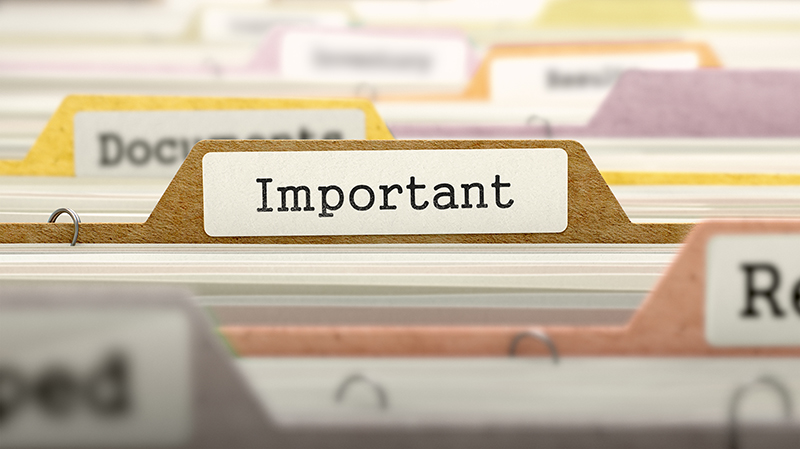Preparing for the unthinkable
October, 01 2018 by Selena Quintanilla, CTEC
When it comes to taxes, there is no shortage of situations to prepare for. One of the most overlooked areas relates to natural disasters. Disasters can strike in any place and at any time. For this reason, taking precautionary actions is highly encouraged.
In 2018 alone, the IRS granted tax relief and support to millions of taxpayers affected by natural disasters. This report accounts for hurricanes, severe storms, tropical storms, tornados, flooding, wildfires, high winds, earthquakes, and even volcanoes.
Many taxpayers have arrangements in place for their families in the event of a disaster, but we should also have a preparedness plan for vital records. Such a system can be useful when accounting for belongings, property, and critical documents following an emergency.
Some things to consider when creating a preparedness plan include:
Checking on fiduciary bonds
If you operate a business and use payroll service providers, you should inquire into whether a fiduciary bond is in place. A fiduciary bond could protect you in the event the payroll provider defaults.
Making copies of fundamental documents
Original records of items such as tax returns, insurance policies, titles, etc., should be kept in a secure area concealed in waterproof containers. A duplicate set of these documents can be left with a trusted family member or friend outside of the anticipated disaster area. Or instead of copying documents, original files can be scanned for backup on a hard drive, flash drive, CD or DVD. Additionally, many financial institutions provide statements and reports electronically that can be downloaded and saved.
Taxpayers who file through TurboTax or other DIY tax software may be able to request prior year tax returns and attachments directly through their software provider. In addition, copies of returns can be requested on IRS.gov.
Documenting Valuables
Taking photos or video recordings of household and business items can be helpful, not only for insurance claims, but also to claim tax benefits if a disaster strikes.
The IRS is available for general assistance
Taxpayers affected by a federally-declared disaster can consult with an IRS specialist trained to handle such matters. TaxAudit members who receive a notice regarding their casualty loss deduction should contact us immediately.





